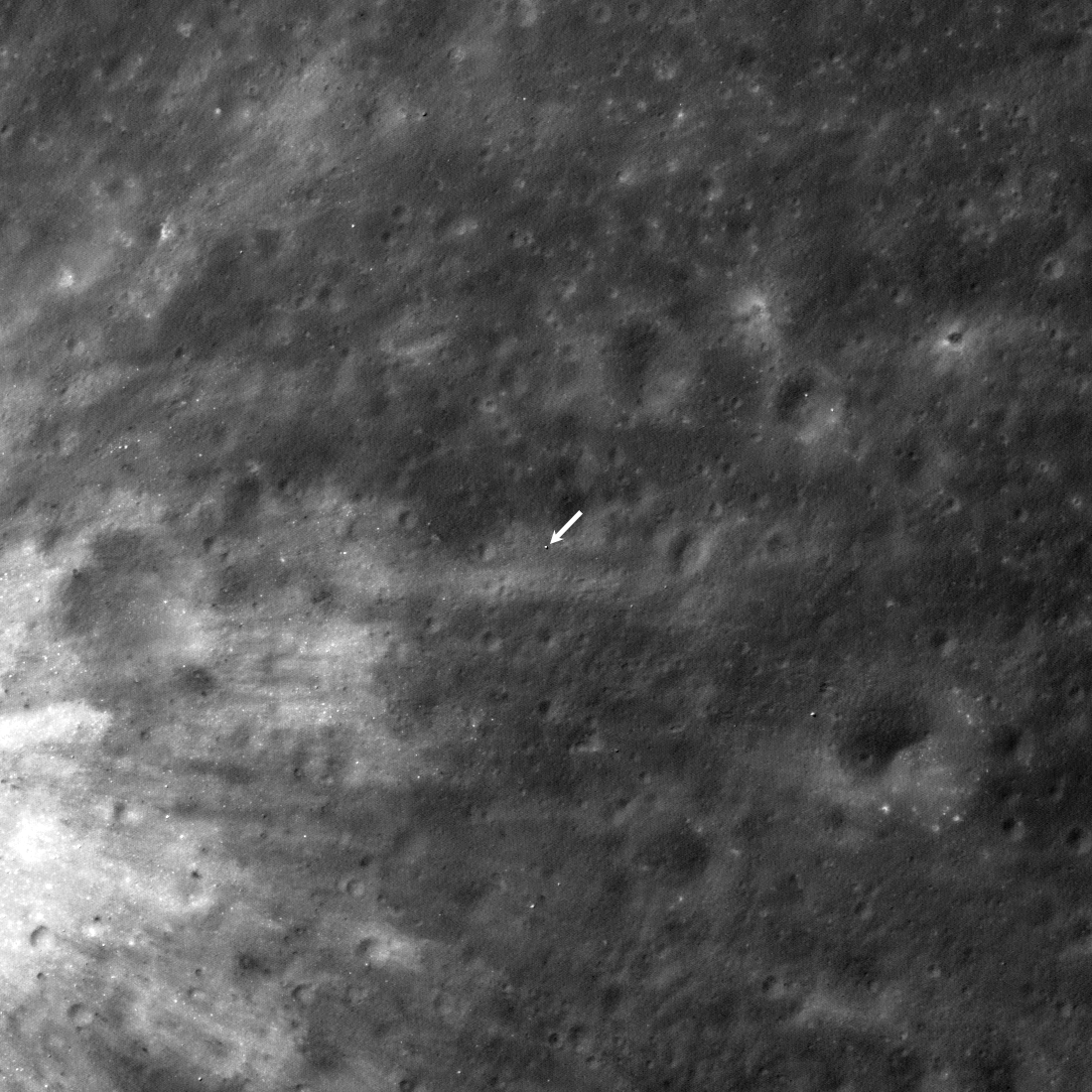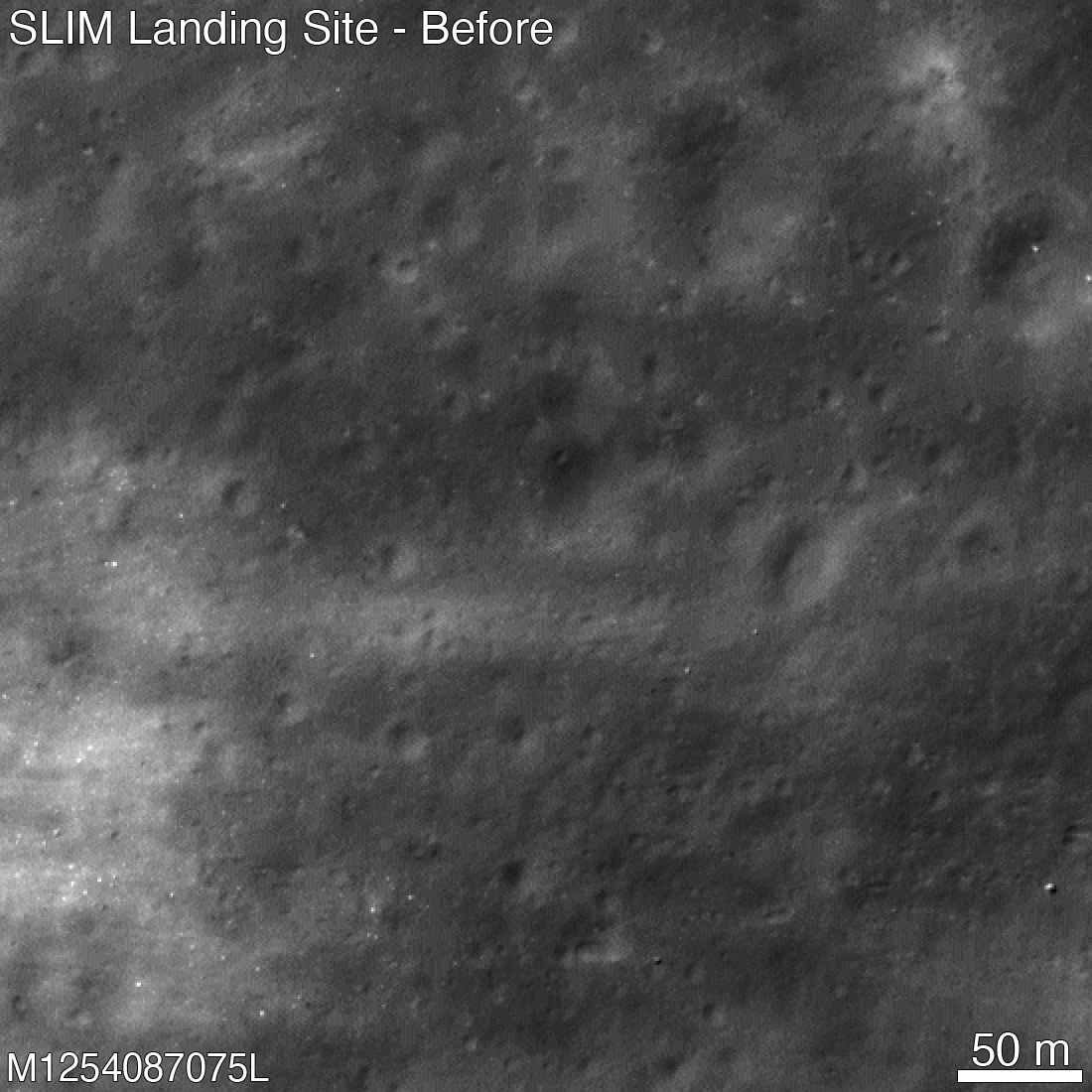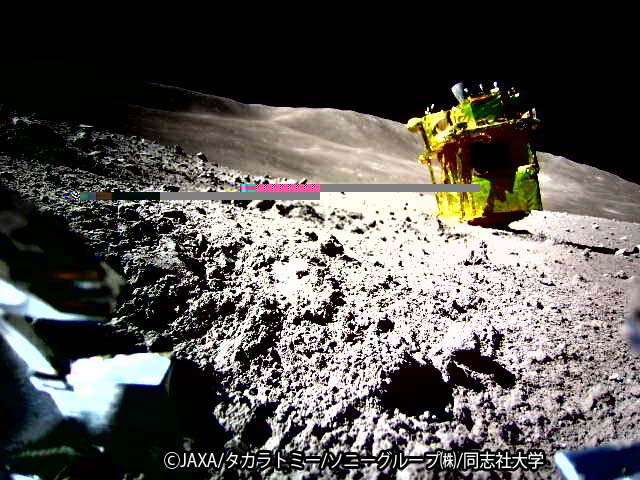NASA has published images taken by the LRO spacecraft in orbit around the Moon. It managed to photograph the Japanese SLIM probe.

The LRO photo shows a bright dot on the slope of Shioli crater. This is SLIM. If we compare the images taken before and after the landing of the Japanese probe, we can see that the surrounding area has become lighter. It happened during the landing, SLIM disturbed the regolith layer.

The LRO image was taken on January 24, 2024, from an altitude of 80 km. At that moment, the Sun was at its zenith above the SLIM landing site.
Problematic moon landing
SLIM landed on the Moon on January 19th. During the descent, when the probe hovered at an altitude of 50 meters, one of its engines failed. This led to the fact that SLIM landed in an abnormal mode, burying its “head” in the regolith. As a result, the solar panels of the vehicle were in the shade.

Because of this, SLIM was in touch with Earth for only 2.5 hours. Nevertheless, it managed to transfer the collected data. Microrovers dropped by the spacecraft before landing also got in touch with the MCC. One of them managed to take a photo of SLIM.
Despite all its problems, SLIM managed to land 55 meters from the set point, completing the main task of the mission — demonstrating the possibility of an accurate landing on the Moon. Mission specialists still hope that at sunset, the Sun will illuminate the probe’s solar panels, which are still in the shade, and it will reconnect. The sunset over the Shioli crater will take place on January 31.
According to https://www.lroc.asu.edu
Follow us on Twitter to get the most interesting space news in time
https://twitter.com/ust_magazin


